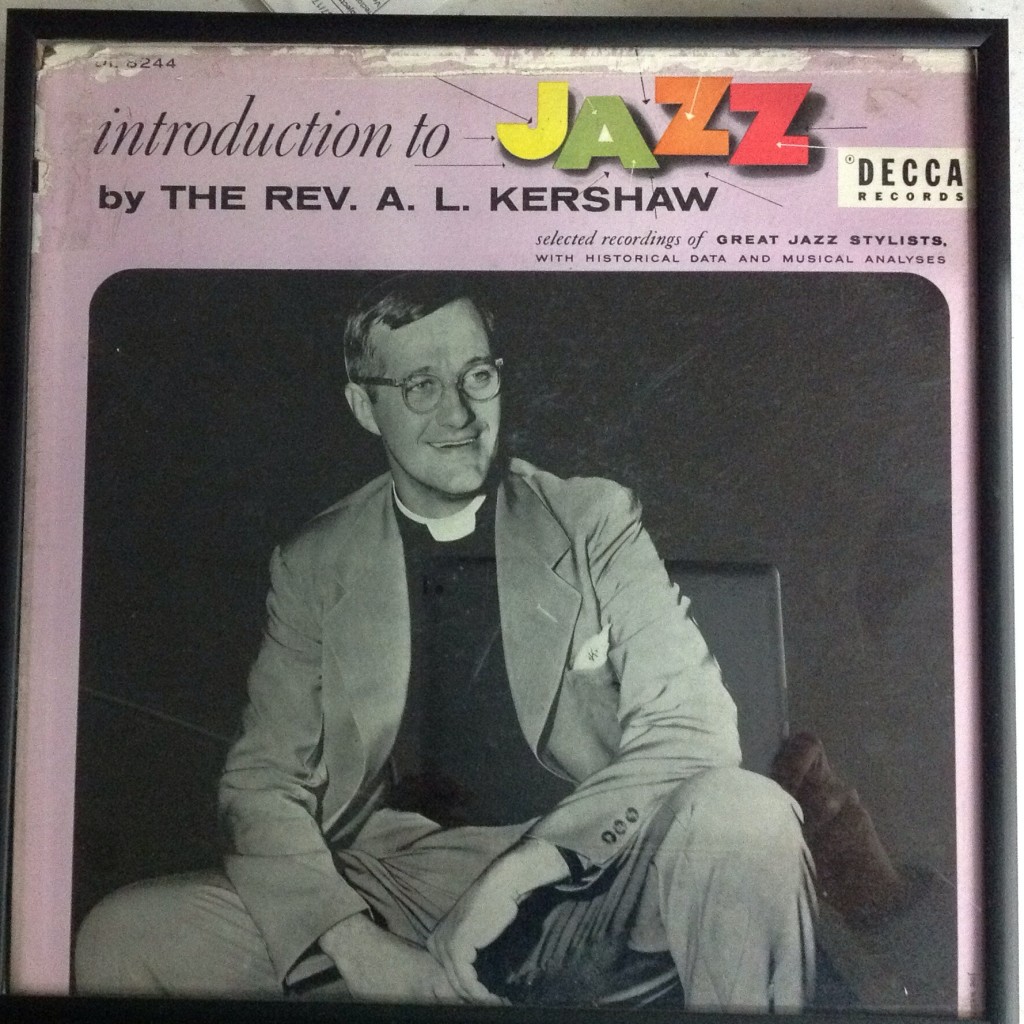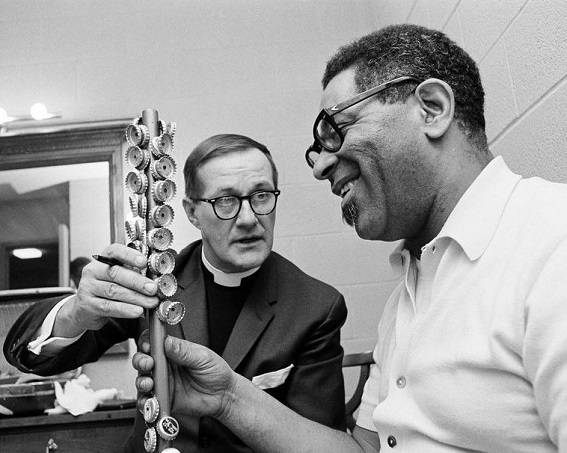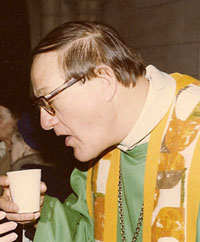The Rev. Alvin Louis Kershaw‘s album Introduction to Jazz was released by Decca Records. According to the guide to his papers donated by his widow Doris to the U. of Southern Mississippi’s McCain Library and Archives, the University of Mississippi (Ole Miss) had invited him to speak in February 1956:
on the subject of jazz, an area in which he was considered something of an expert. In the meantime, [he had become] a contestant on the television quiz show The $64,000 Question, where his expertise in the field of jazz helped him to win $32,000. In an interview after the program, he alluded to the possibility of donating a portion of his winnings to the National Association for the Advancement of Colored People (NAACP) to aid in the battle against segregation. When word of this reached Mississippi, the Rev. Kershaw became the target of a firestorm of criticism, which eventually led to cancellation of his scheduled visit to Ole Miss.
Our archive has a copy of the record, which contains “Selected recordings of great jazz stylists, with historical data and musical analyses” and these tunes:
- Snag it (King Oliver’s Savannah Syncopators)
- Wild man blues (Johnny Dodds’ Black Bottom Stompers)
- I’ve found a new baby (Chicago Rhythm Kings)
- Tin roof blues (New Orleans Rhythm Kings)
- Davenport blues (Adrian Rollini’s Orchestra)
- The blues jumped a rabbit (Jimmy Noone’s New Orleans Band)
- Five point blues (Bob Crosby’s Bob Cats)
- Perdido Street blues (Louis Armstrong)
- Georgia cake walk (Art Hodes and his band)
- Impromptu ensemble no. 1 (Bobby Hackett et al.)
- Tishomingo blues (Bunk Johnson)
- Chimes blues (George Lewis and his Ragtime Band).





